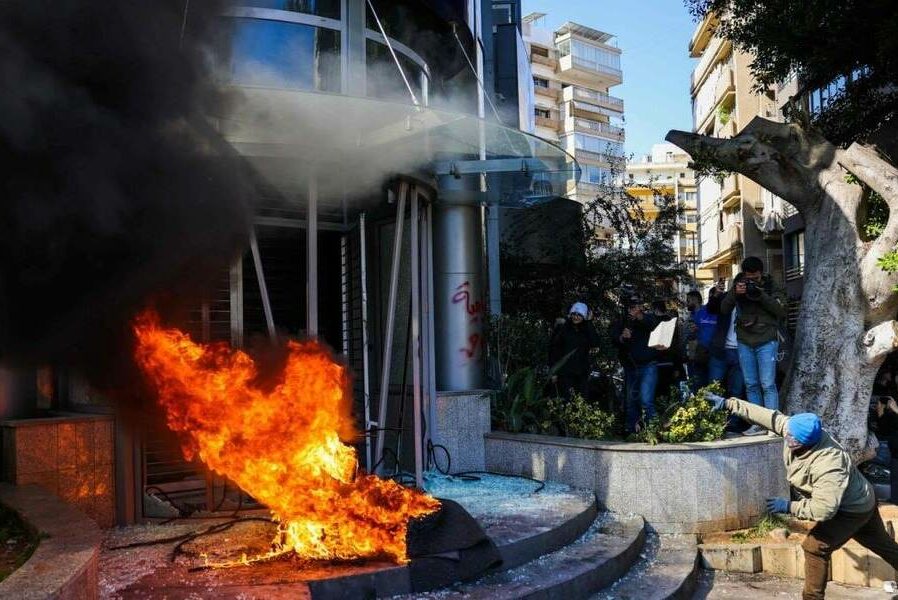Protesters in Beirut set fires and smashed bank windows in protest of ongoing cash withdrawal restrictions.
Since 2019, there have been strict restrictions on withdrawing US dollars and Lebanese pounds, preventing people from accessing their savings. The protests come as the Lebanese pound reaches a new low. The Lebanese pound which has never been formalized by law forced depositors to seek access to their funds through lawsuits and, in some cases, force.
Read more: Lebanon’s banks open their doors again, amid threats by depositors
A spokesperson for Depositors’ Outcry Association, a lobby representing depositors with money stuck in the country’s banking sector, said at least six banks had been targeted as the Lebanese pound hit a new record low. On Thursday, it was trading at around 80,000 pounds per greenback, compared to 70,000 pounds just two days earlier.
As firefighters sprayed water on a bank in the Badaro neighborhood in Beirut, riot police stood nearby with shields.
Later, a handful set fire to objects outside the home – including the front gate – of Salim Sfeir, the chair of the Association of Banks in Lebanon.
Since the country’s financial sector imploded in 2019, the Lebanese pound has lost more than 98 percent of its value.
Banks in Lebanon were already on strike, and government interventions had failed to alleviate the economic crisis.
In a statement, Lebanon’s Prime Minister’s said that efforts were being made to improve the country’s financial situation.
Lebanon took the first step toward obtaining an International Monetary Fund (IMF) debt relief in April 2022 but has yet to complete the necessary reforms nearly a year later.
According to official figures, inflation in Lebanon surged by more than 189 percent between January and November of 2022. Lebanon’s inflation rate was described as the second highest in the world by the credit rating agency Fitch last August.
For more on banking and finance news, click here.








